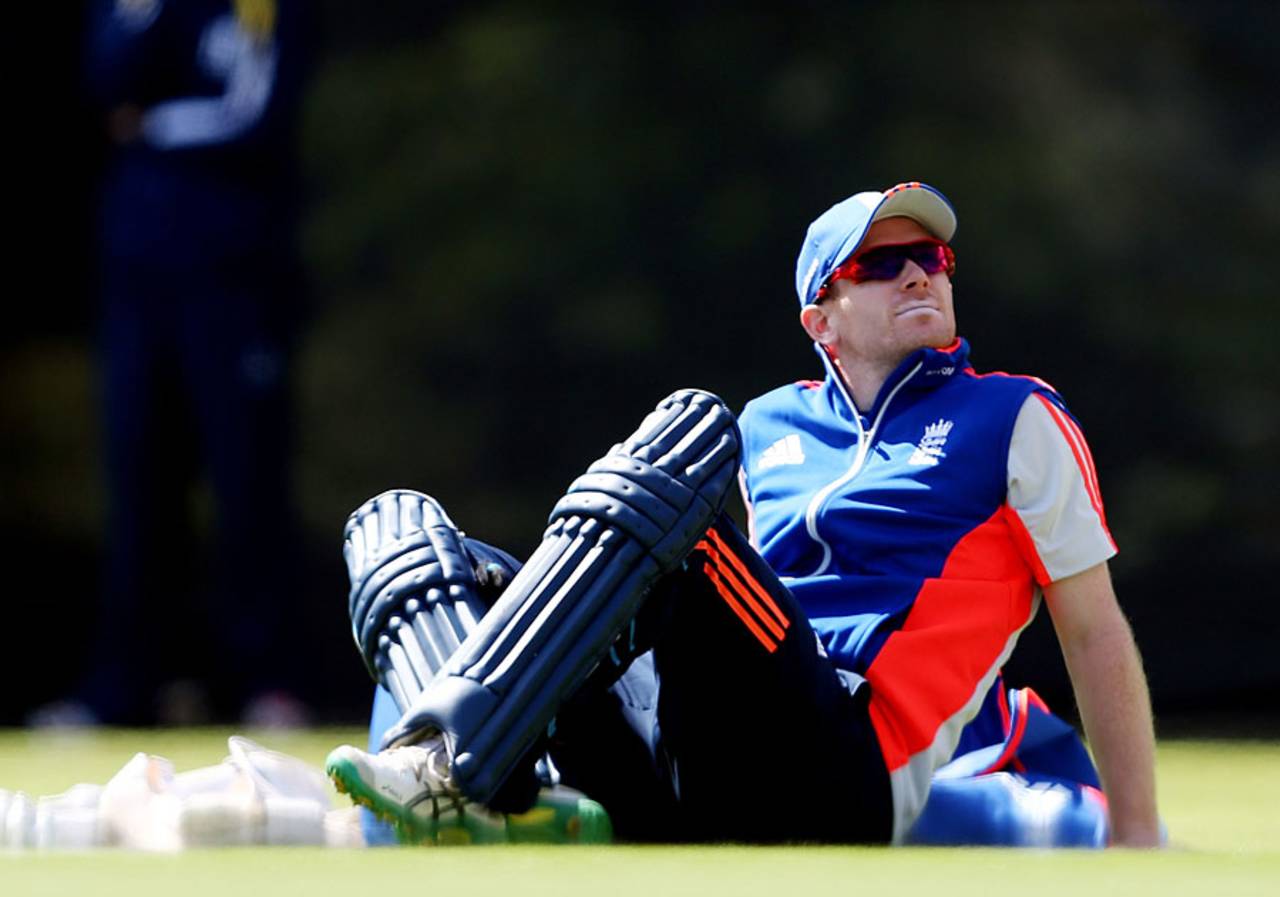Paul Farbrace, the England assistant coach, believes the cultural evolution of one-day cricket as an equal to the Test game in England is almost complete, after a summer where the national side has found a new lease of life with the white ball.
One of Andrew Strauss' first decisions on being named director of England cricket - after ending Kevin Pietersen's career - was to reappoint Eoin Morgan as limited-overs captain and make abundantly clear that Test results were not the be-all and end-all. Farbrace has now suggested that focusing purely on a limited-overs career would not be seen as a lesser option.
Farbrace even supported the notion that in the near future, a player could shelve red-ball cricket in its entirety earlier in a career to focus on the shorter versions of the game. "The way the game is moving forward that could easily happen, couldn't it?," he said.
It would not be an entirely new concept. Some West Indies players, such as Dwayne Bravo who has not played a first-class game since 2013, are heading that way. Chris Gayle could be next, but the decisions of these players have have been based around either money, politics or injury. For an English cricketer, especially, to go solely the white-ball route would be a considerable sea-change.
It is not beyond the realms of possibility that Morgan becomes such a man. Only once in the last four seasons has he had first-class returns of any strength - 2014 when he averaged 45.84 - and his first-class average of 34.97 is lower than his List A figure of 37.20.
"He would have said previously: 'Yes, I want to play Test cricket for England.' But it might just be that we are saying for the first time in England that it's okay to be seen as a specialist one-day player and you haven't got to always be pushing to play Test cricket," Farbrace said.
"If so, Straussy should take the credit for this. Test cricket might not be suited to you. There will be others in the same boat. Now, I am not saying that Morgs wouldn't play Test cricket for England again but at the moment the way he is playing one-day cricket and the freshness that he then brings into series is working really well."
On Sunday at Old Trafford, England have the chance to secure a series victory against world champions Australia, having been 2-0 down. England have also beaten New Zealand 3-2, and won the two one-off T20s against both teams, meaning they could be unbeaten across all formats this summer come the end of the weekend.
Long seen as the poor relation to the five-day game in a country where Test cricket has continued to be held aloft, England's diabolical World Cup - their sixth failure in the event since reaching the final in 1992 - brought the latest attempt to haul the one-day game into greater focus. That desire was not new. Each World Cup exit promoted a review and a host of new ideas, but this time, there is the belief that the changes are for real and will have a sustained effect.
"What will happen is that some people will come into one-day cricket and do really well and might get themselves into the Test side. But we're not using one-day cricket as a vehicle for Test cricket," Farbrace said. "One-day cricket is being treated in isolation to Test cricket. If you have the skills to play one-day cricket, you can have a great career for England without ever playing a Test match. There's nothing wrong with that.
"Perhaps a few years ago, it was perhaps seen as a bit of a stepping stone to play Test cricket. I think that is where Strauss has been really clever, he has been very upfront and honest about it."
It has been England's limited-overs resurgence that has been the success story of the summer despite the Test side regaining the Ashes. England's Test fortunes had not slumped to the depths of the one-day game, despite the inconsistency which saw them throw away series leads against West Indies and New Zealand, and remained on show in the Ashes. Farbrace admitted the collective success had exceeded expectations.
"If at the start of this summer somebody would have said that we would draw the New Zealand Tests, beat New Zealand in the one-dayers, win the Ashes and be going into the last game locked at 2-2, we would have snapped their hand off - and probably walked away saying 'whatever they're drinking, I'll have a pint of that.'
"Let's be fair. I know people have said they want England players to play with a smile on their face, playing this positive cricket, but the most important thing to any national team, in any international sport, is winning. Winning series is what it's about.
"To win a match chasing down 300 like on Friday gives you huge confidence. We want to win on Sunday, and we want to play well, but I would take a scrappy win. It's about winning and teams develop quickly when they're winning. You don't want to be a developing team that keeps losing. We all want to see the team win, don't we?"
Andrew McGlashan is a deputy editor at ESPNcricinfo
